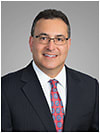Ophthalmology groups are struggling with the strain the coronavirus pandemic has put on their day-to-day operations. Many groups have had to postpone non-emergency appointments and surgeries and have reduced or furloughed staff.
Here, we will summarize some key legal issues for ophthalmology practices, including newly enacted federal laws and agency guidance.
Telehealth and OIG co-payment, plus Stark law waivers
The Telehealth Services during Certain Emergency Periods Act of 2020 eases Medicare restrictions on the reimbursement of telehealth services. A March 17 CMS waiver clarifies that:
- Any Medicare patient can receive telehealth for all services (even if unrelated to COVID-19), such as office visits, prescriptions, back pain, etc.; and
- Providers can reduce or waive cost-sharing for all telehealth visits.
In addition, specific Stark law waivers exist for certain remuneration and referrals related solely to certain COVID-19 purposes regarding fair market value rent, loans to physicians and certain payments from hospitals to physicians.
Enhanced patient communications
On March 20, 2020, the Office for Civil Rights at the Department of Health and Human Services issued FAQs encouraging remote communications with patients and allowed technologies. Acceptable HIPAA-compliant vendors include:
- Skype for Business/Microsoft Teams
- Updox
- VSee
- Zoom for Healthcare
- Doxy.me
- Google G Suite Hangouts Meet
- Cisco Webex Meetings/Webex Teams
- Amazon Chime
- GoToMeeting.
Facebook Live, Twitch, TikTok and similar public facing applications are not acceptable.
ASC options and flexibility
On March 30, CMS announced that ASCs (many of which are restricted by states from performing elective surgeries) can contract with local health-care systems to provide hospital space and/or services. These include non-elective surgeries for hospitals, such as cancer, trauma and other essential surgeries. ASCs also can enroll and bill as hospitals subject to certain caveats.
CARES Act: Grants and forgivable loans
On March 27, President Trump signed The Coronavirus Aid, Relief and Economic Security Act, which provides various economic stimulus, including:
- $349 billion for loans through the “Paycheck Protection Program.” Many ophthalmology practices may be eligible to receive a loan under the program, because businesses with less than 500 employees may apply. Key requirements include:
- Certify that economic conditions necessitate the loan for ongoing operations. Businesses that closed or reduced staff can still qualify.
- The loan amount is the lesser of (i) average monthly payroll multiplied by 2.5 (based on certain time periods) or (ii) $10 million. No personal guaranty or collateral is required.
- The loan may only be used for payroll costs (for employees under $100,000), benefit costs, rent, utilities and interest on debt incurred prior to Feb. 15, 2020.
- Eligible costs incurred and paid over the 8 weeks following receipt of proceeds will be forgiven, except: (i) if there is a reduction in average number of employees versus prior year or (ii) if 25% or more pay reduction of employees making under $100,000 per year. (If the practice rehires and ends any salary reductions prior to June 30, 2020, the practice will still qualify for forgiveness).
- The loans will be made through banks and guaranteed by Small Business Administration (SBA). Applications and other details can be found at: https://home.treasury.gov/system/files/136/Paycheck-Protection-Program-Application-3-30-2020-v3.pdf . SBA-participating banks can start processing applications on April 3 and can directly approve loans, so a streamlined process is expected. Ophthalmology groups should prepare and submit their applications by April 3 (or as soon as possible thereafter), as it is anticipated that the $349 billion will be allocated very quickly (and is “first come, first served”).
- $100 billion is authorized to reimburse caregivers that “provide diagnoses, testing or care for individuals with possible or actual cases of COVID-19” for expenses or lost revenues attributable to COVID-19. Application details are not yet available.
- $562 million was added to existing SBA disaster loan programs, providing loans up to $2 million to businesses suffering due to COVID-19. Although these loans must be repaid, applicants receive a $10,000 emergency grant not requiring repayment. Applications can be found at https://covid19relief.sba.gov/#/
All payer reimbursement
For ophthalmology groups involved in testing patients for COVID-19, the Families First Coronavirus Response Act (https://www.littler.com/files/cong_rec_16mar2020.pdf ), enacted March 18, 2020, requires coverage for COVID-19 testing without cost-sharing, prior authorization, or other medical management requirements across all payers throughout the country.
Employment & workforce issues for ophthalmology groups
- Taking employees’ temperatures. With the pandemic, the EEOC has clarified that employers may measure body temperature as the disease becomes widespread in the community as assessed by state or local health authorities or the CDC. Employers concerned about privacy implications or potential ADA violations may consider the alternative of requiring their employees to take their own temperatures and stay home if they determine they have a fever (100.4 degrees or higher).
- Refusals to work. The Occupational Safety and Health Administration (OSHA) recently issued Guidance on Preparing Workplaces for COVID-19 (https://www.osha.gov/Publications/OSHA3990.pdf ) as well as interim guidance for workers with potential occupational exposure to COVID-19 (https://www.osha.gov/SLTC/covid-19/controlprevention.html ). Employees refusing to work due to a good-faith belief that they are under “a real danger of death or serious injury” may be protected under OSHA. Consult legal counsel before disciplining or terminating such staff.
- Sick employees compensation. Exempt employees must be paid their regular salaries if they work any portion of a workweek. Non-exempt (hourly) employees need be paid only for time worked, and may be able to use sick time or other PTO if they are ill or caring for a relative. The Families First Coronavirus Response Act requires employers with fewer than 500 employees to provide up to 80 hours of emergency paid sick leave to employees who experience symptoms of coronavirus, are seeking a medical diagnosis or are advised by a health provider to self-quarantine. Employers, however, are permitted to exclude health-care providers (including anyone employed at a physician office) from coverage under this law. Employers also may consider paid administrative leave and advancing future PTO and may extend telework options to non-exempt employees who can work remotely and track their time.
- Cost-savings measures. Employers whose operations have been suspended or reduced due to COVID-19 may need to consider reducing employees’ wages and/or hours. Reductions must be prospective and comply with state-specific notice requirements. For exempt employees, salary rates should not be less than applicable federal (or state, if higher) required minimums. Another option is to place employees on a short-term furlough, ie, an unpaid leave of absence, until operations resume. Employees on furlough may be eligible to continue participation in the group health plan for a period of time, or may qualify for COBRA coverage.
State-by-state actions in response to COVID-19
Individual states are also taking actions to reduce the spread of the virus. Ophthalmology groups should check executive orders and other waivers from their home states, possibly including:
- Prohibition on elective surgeries, which has been devastating to many groups
- Relaxing facility licensure requirements to allow ASCs to house and treat patients
- Loosening of in-state licensure requirements for facilities and expansion of mid-level providers’ scope of practice and supervision reduction
- Mandatory reporting of essential medical equipment (eg, personal protective equipment, ventilators, respirators, anesthesia machines, etc.)
- Mandatory reporting of patients who show symptoms of COVID-19 infection
- Temporary state kick-back and self-referral waivers to treat coronavirus patients
- Loans or grants to assist small businesses including medical offices OM
Mr. Herschman and Ms. Patel are moderating an upcoming free series of webinars, "Physician Group Transactions 2020: Prospering in Health Care's Uncertain Future." The webinars will feature insight from national experts on physician practices. To register, click here.
Nothing herein should be construed as providing legal advice in any particular circumstances.











